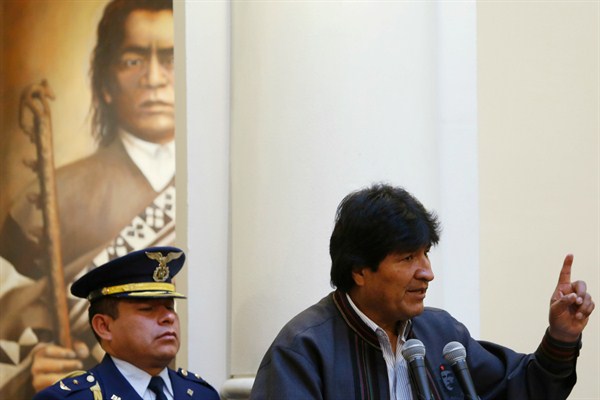Editor’s note: This is the first article in an ongoing WPR series on the legal status and socio-economic conditions of indigenous peoples in a range of countries.
Bolivian President Evo Morales entered office in part thanks to Bolivia’s politically organized and potent indigenous movement. In an email interview, Linda Farthing, a writer and editor specializing in Bolivia and Latin America whose latest book is “Evo’s Bolivia: Continuity and Change,” discusses the legal status and socio-economic conditions of Bolivia’s indigenous communities.
WPR: What is the legal status of Bolivia’s indigenous peoples, and what are the key political and socio-economic issues facing indigenous communities?

